Choosing the Best Roofing Materials for Jacksonville’s Climate: A Comprehensive Guide
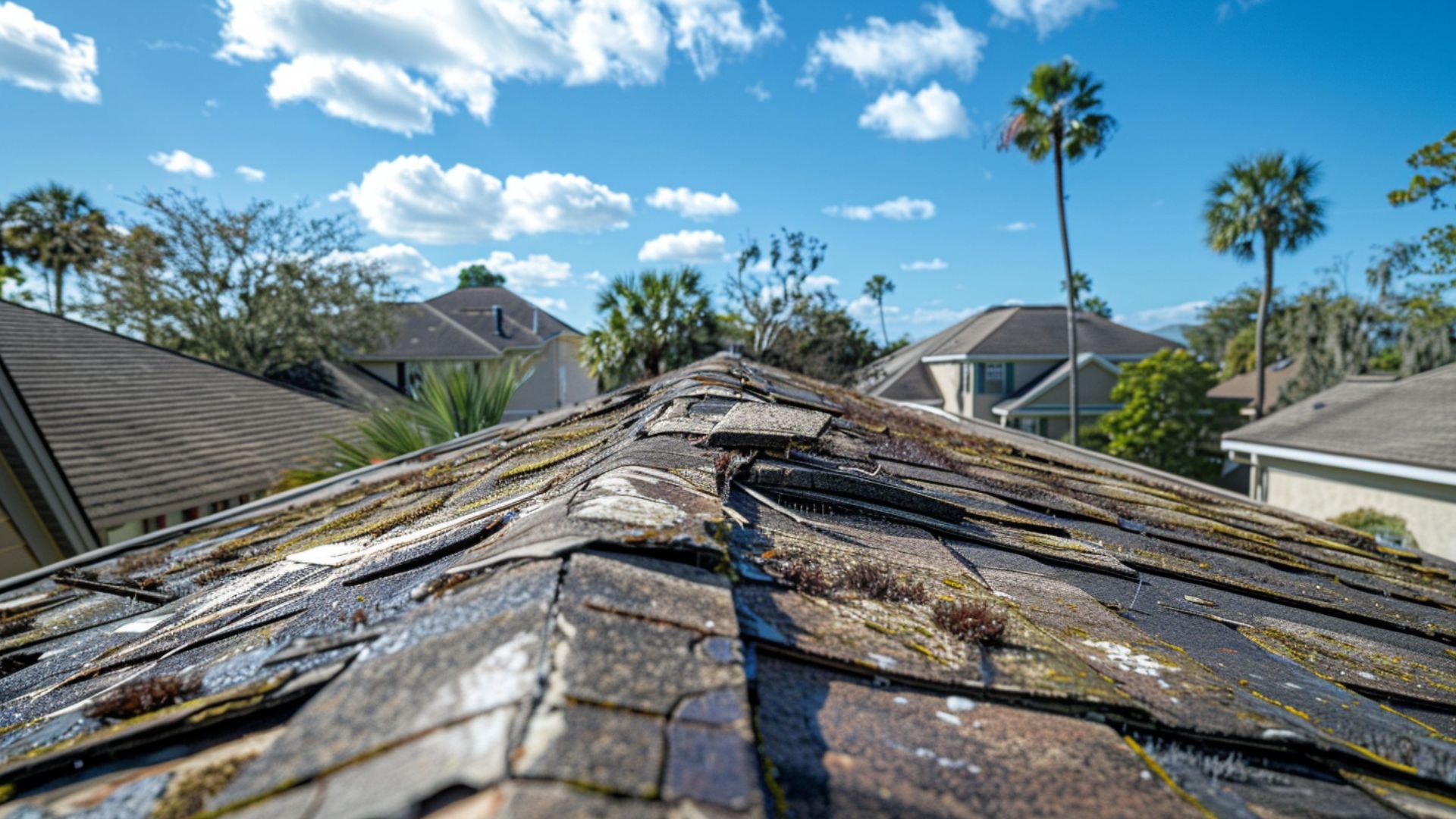
Choosing the Best Roofing Materials for Jacksonville’s Climate: A Comprehensive Guide
Are you struggling with roof durability in Florida’s extreme weather? With its intense heat, high humidity, and frequent hurricanes, your roof faces unique challenges in this sunny paradise. Homeowners often worry about premature wear, frequent repairs, and energy inefficiencies caused by Florida’s demanding climate.
Understanding how to protect your home from these conditions is essential. From choosing the right roofing Jacksonville FL materials to implementing effective maintenance practices, addressing these issues can help you ensure your roof remains resilient and efficient.
In this blog, discover the key strategies to safeguard your home against Florida’s climatic extremes and maintain a secure, comfortable living environment.
Ready to secure your home with a trusted roofer?
Call Steel Rudder Roofing now for an immediate consultation!
Key Takeaways
- Jacksonville’s Climate: Extreme heat, high humidity, hurricanes, and hail are major factors to consider when selecting roofing materials.
- Best Roofing Materials: Asphalt shingles, metal roofing, concrete or clay tiles, and synthetic options offer strong protection in Jacksonville’s weather.
- Durability Matters: Choose materials that withstand heat, moisture, and high winds to ensure long-lasting performance.
- Climate Change Impact: Climate change intensifies weather extremes, making durable roofing materials and regular maintenance essential.
- Expert Advice: Consult professionals to select and install the best roofing materials suited to Jacksonville’s unique conditions.
Extreme Heat
Summers in Jacksonville bring intense heat, with temperatures commonly ranging from 88°F to 91°F (31°C to 33°C). Prolonged exposure to this heat can lead to:
- Warping and cracking of roofing materials
- Fading of color in shingles or tiles
- Higher energy costs due to heat absorption, particularly with asphalt shingles
This constant barrage of sunlight can reduce the lifespan of certain roofing materials, making heat-resistant options essential for long-term durability.
High Humidity and Rain
The high humidity in Jacksonville, particularly between June and August, paired with heavy rainfall from May to mid-October, creates ideal conditions for water damage. Homeowners need to be wary of:
- Mold and mildew growth beneath roofing materials
- Water seepage leading to leaks and wood rot
- Gradual weakening of roofing structures from moisture
Proper sealing and ventilation are critical to prevent these issues and maintain a healthy roof structure.
Hurricane-Force Winds
Hurricane season (June to November) brings destructive winds that can severely damage roofing systems. Potential risks include:
- Wind-driven debris causing punctures
- Uplifting of roofing materials, leaving the structure vulnerable to water damage
- Shingles or tiles being blown off entirely
Wind-resistant roofing materials and proper installation techniques are vital to withstanding Jacksonville’s hurricane season.
Hail Impacts
Though not as frequent as other weather conditions, hailstorms in Jacksonville, particularly in the spring and fall, can still cause significant damage. Common issues from hail include:
- Dents in metal roofing
- Cracks or chips in tiles or shingles
- Compromised roofing leading to leaks and structural damage
Routine inspections after hailstorms can help identify and repair damage before it worsens.
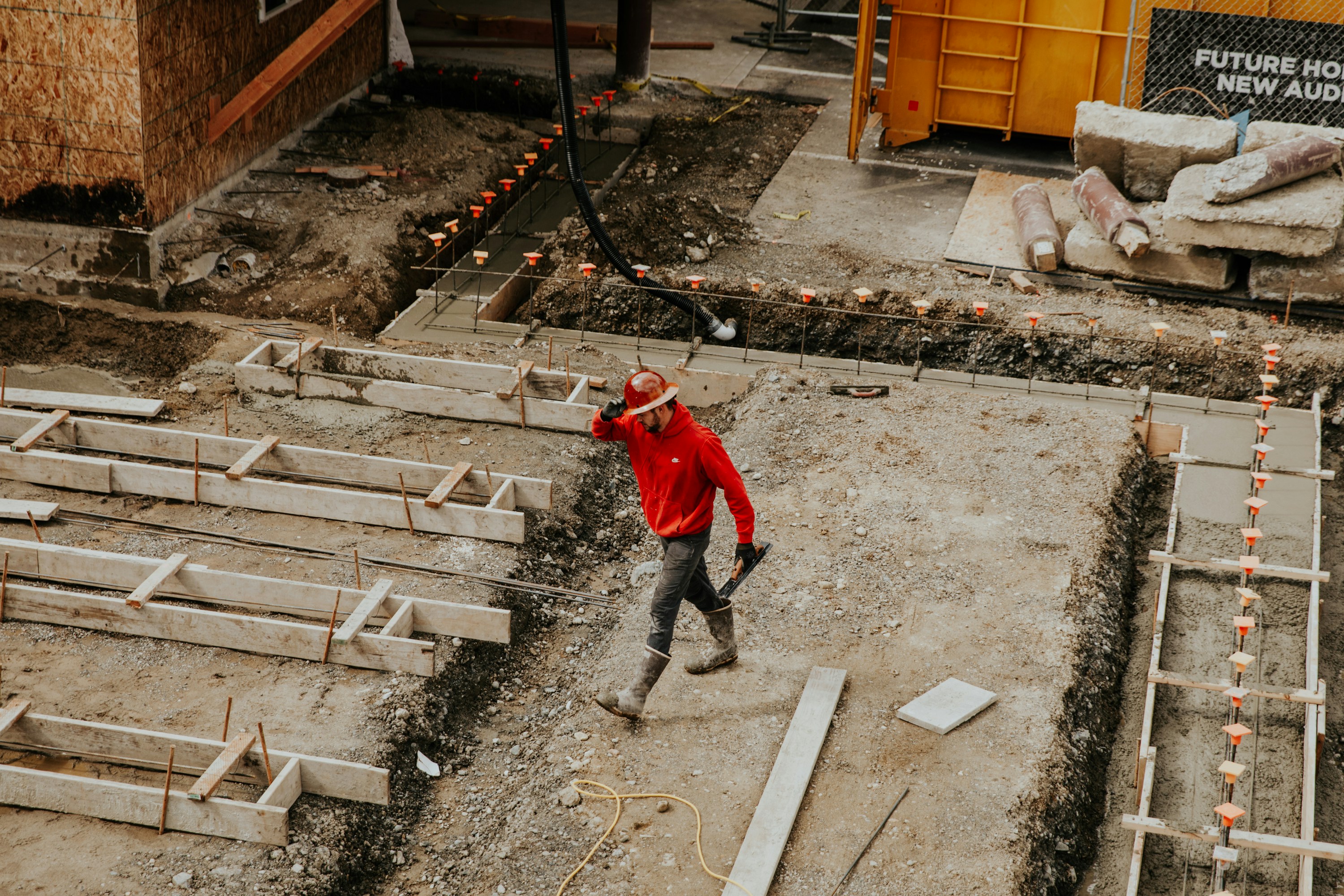
Climate in Florida
Jacksonville’s tropical and subtropical climate brings a variety of weather conditions that can take a toll on roofs. While summers are hot and perfect for outdoor activities, the constant thunderstorms and high humidity can wear down roofing materials. Winters are cooler, making it an ideal time for roof maintenance, though weather fronts during winter and spring can still bring strong rains and winds.
Key Climate Considerations:
- Summer Heat: Ideal for outdoor fun but harsh on roofs
- High Humidity: Increases risk of mold and water damage
- Hurricane Season: Brings severe winds and potential for roof damage.
- Hailstorms: Can cause localized damage, especially to older roofs.
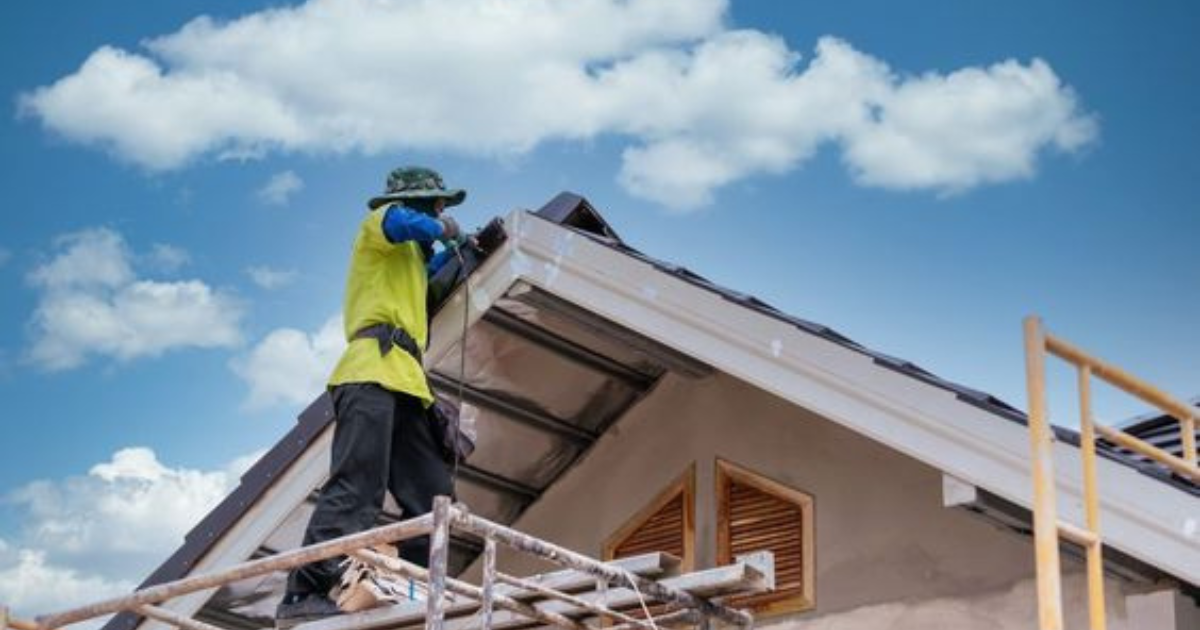
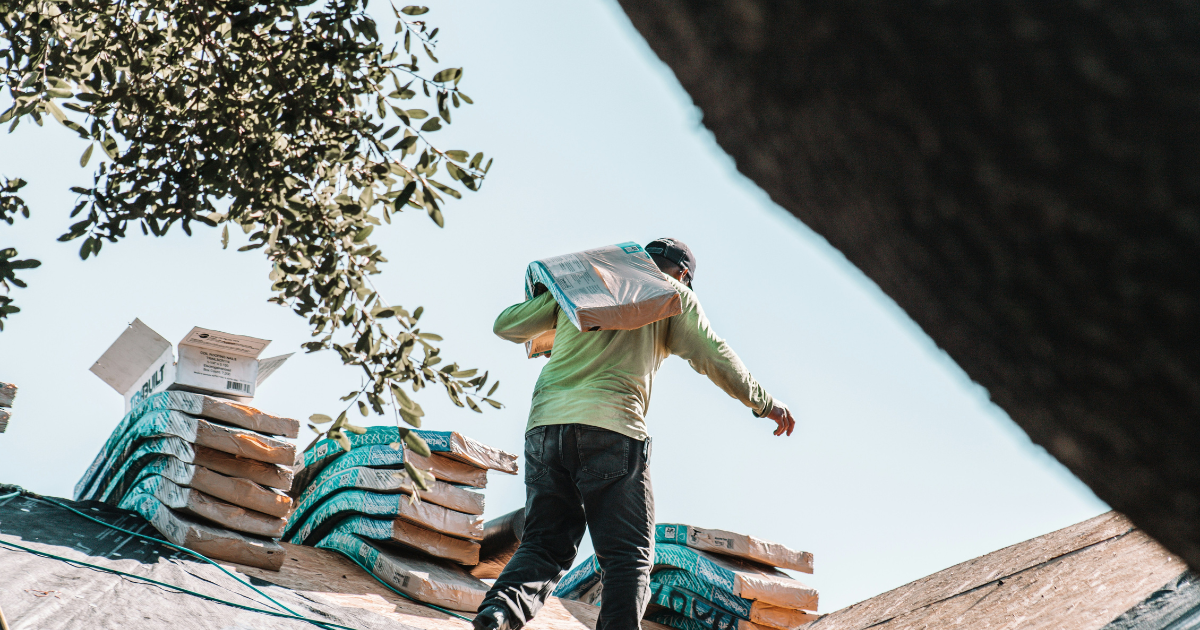
Essential Metrics for Evaluating Roofing Materials in Jacksonville
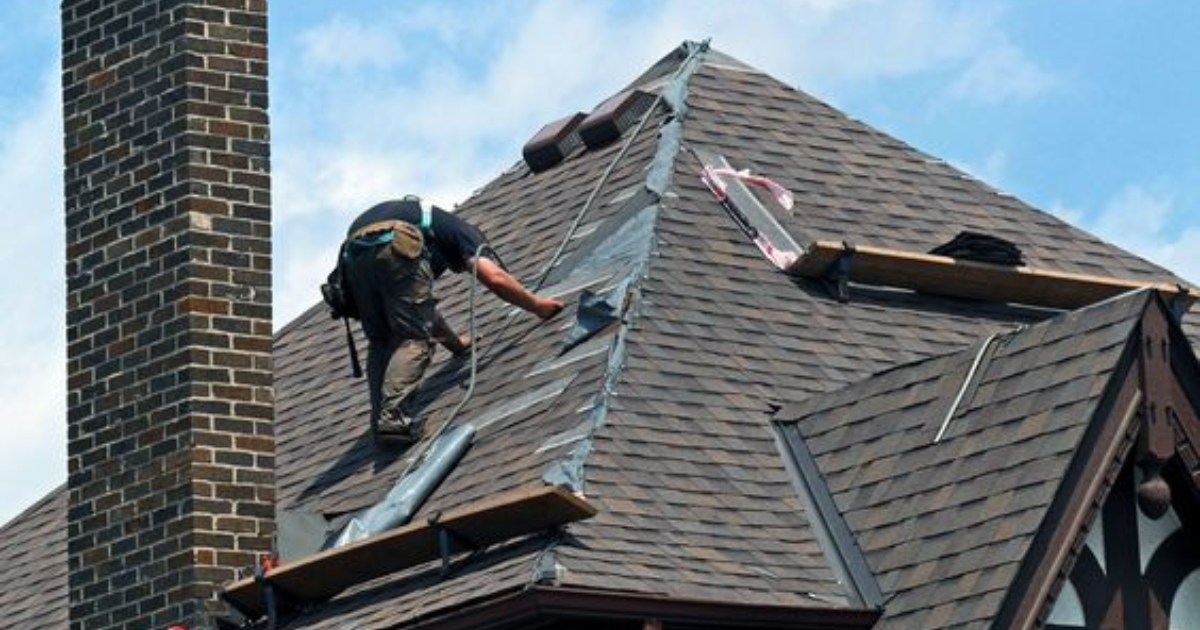
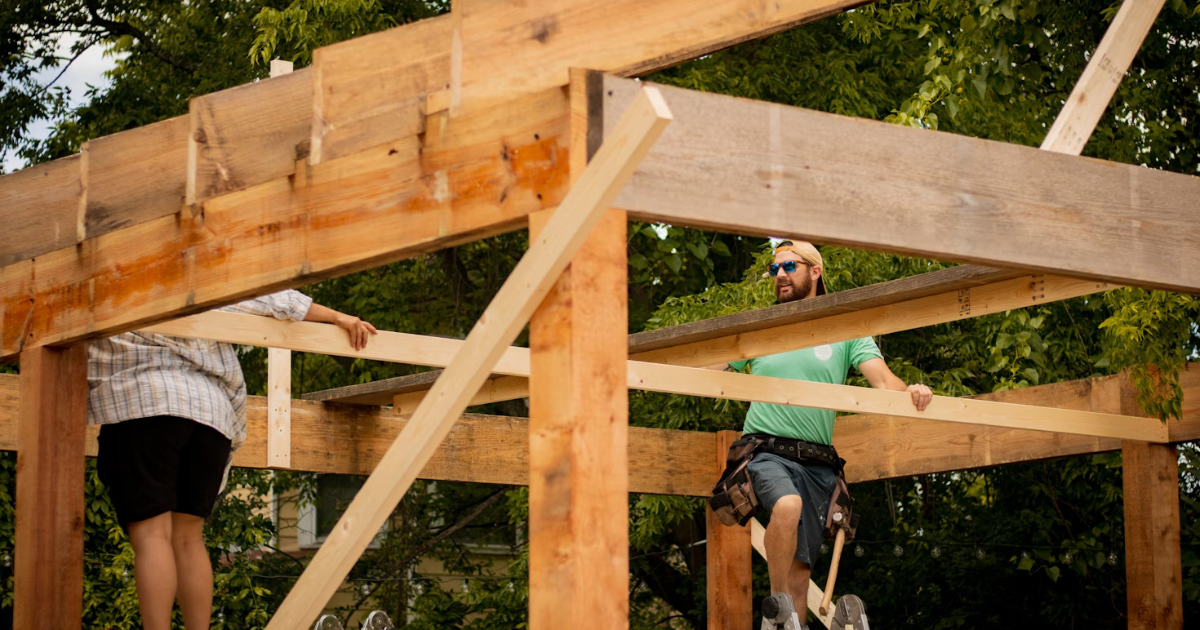
The Impact of Extreme Weather on Roofing Materials
Jacksonville’s climate can be unforgiving, with extreme weather conditions like intense heat, high humidity, heavy rain, hurricane-force winds, and even hail. Each of these factors can significantly impact the lifespan and durability of your roof, making it crucial to choose the right roofing materials that can withstand these challenges.
Effects of Extreme Heat
The intense Florida sun and high temperatures, especially in summer, can cause roofing materials to degrade over time. Constant exposure to UV rays can lead to warping, cracking, and fading, particularly in materials like asphalt shingles.
- Asphalt shingles are especially prone to heat damage, as they can lose their flexibility, making them more susceptible to cracking.
- Metal roofing reflects heat effectively, helping to lower energy costs, but it can become hot to the touch.
- Clay and concrete tiles perform well under high heat due to their natural thermal properties.
Impact of High Humidity and Rain
Florida’s rainy season brings with it high humidity and heavy downpours that can pose significant challenges to your roofing. Moisture retention can lead to mold, mildew, and rot, which can weaken the roof’s structure over time.
- Cedar shakes are particularly vulnerable to moisture-related issues like rot and mold if not properly maintained.
- Concrete and clay tiles offer excellent resistance to water and humidity, making them ideal for rainy climates.
- Synthetic roofing materials are also effective in repelling moisture and preventing water damage.
Challenges of Hurricane Force Winds
Jacksonville’s susceptibility to hurricanes and tropical storms requires roofing materials that can withstand high winds. Roofs in Florida need to be wind-resistant to avoid damage or even complete roof failure during a storm.
- Metal roofing is one of the best choices for wind resistance, capable of withstanding wind speeds of up to 160 mph.
- Asphalt shingles can be vulnerable to being blown off during high winds, especially if they are not installed with reinforced adhesives.
- Slate roofing is heavy and sturdy, providing great wind resistance, though the weight may require additional structural support.
Hail Damage Considerations
Although rare, hailstorms do occur in Jacksonville and can cause severe damage to certain roofing materials. The size and impact of hailstones can crack or puncture roofing, leading to costly repairs.
- Asphalt shingles can suffer granule loss and surface dents, reducing their lifespan and making them less effective at protecting against further damage.
- Metal roofs can dent under severe hail but generally hold up well in comparison to other materials.
- Slate and concrete tiles may crack or shatter under the impact of large hailstones, though synthetic roofing materials often fare better.
Choosing roofing materials that can handle Jacksonville’s extreme weather conditions is essential for long-lasting protection. From heat resistance to wind durability, the right materials can significantly reduce maintenance costs and increase your roof’s longevity.
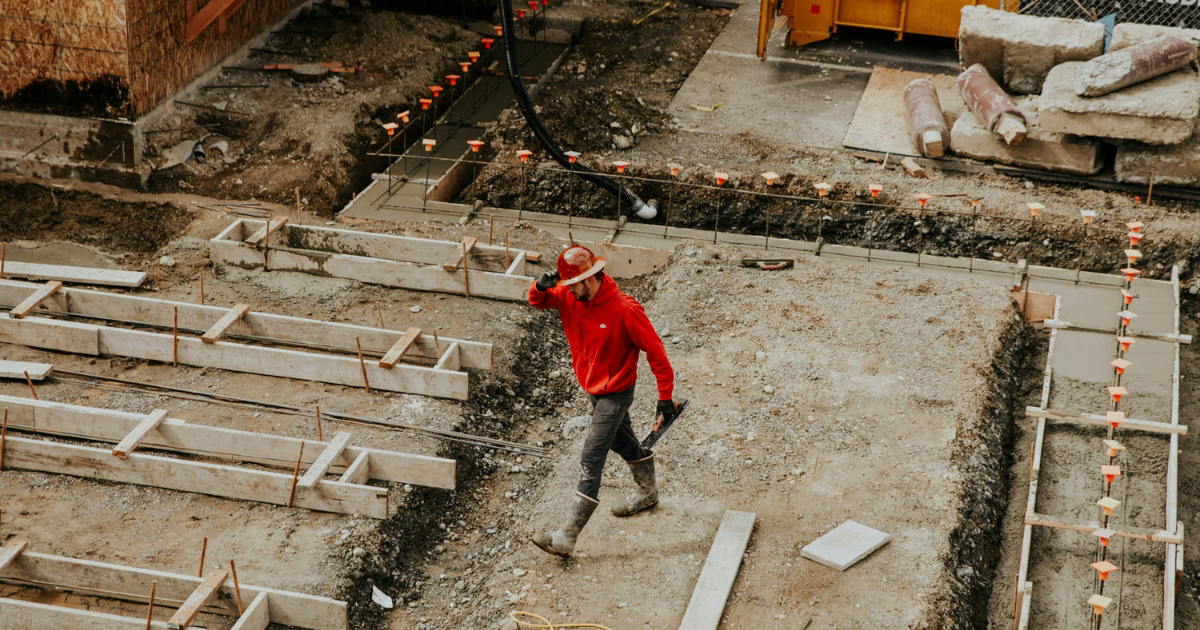
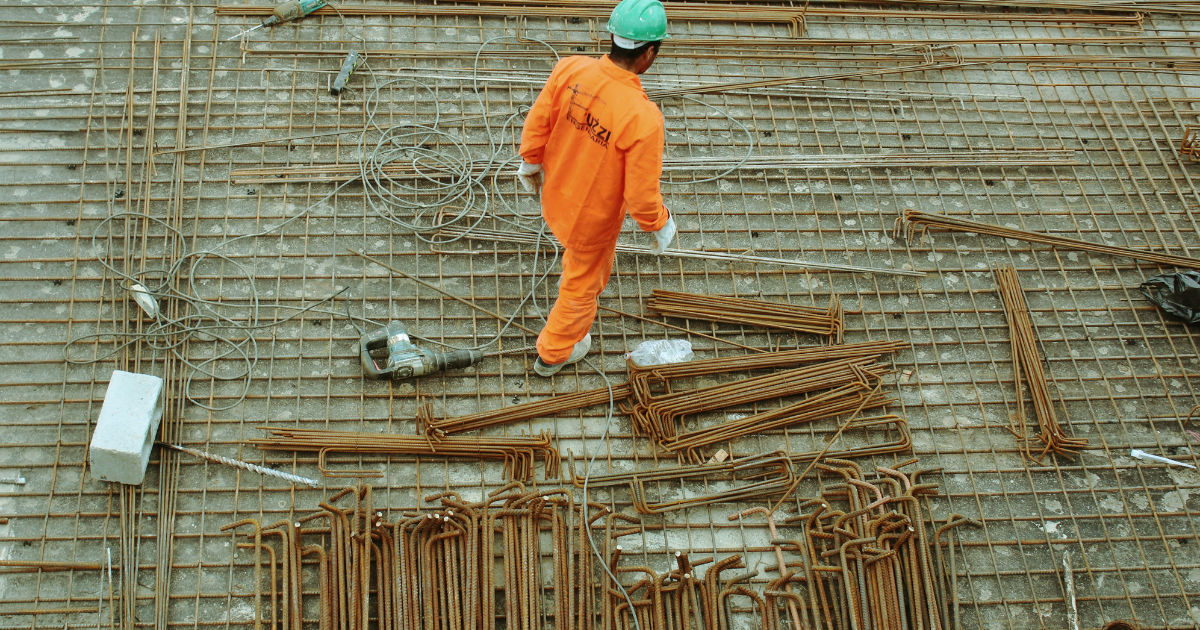
Best Roofing Materials for Jacksonville’s Climate
Selecting the right roofing material for Jacksonville’s diverse and sometimes extreme climate is crucial for ensuring your roof lasts as long as possible while offering the best protection. Here’s a breakdown of some of the best roofing materials for handling Jacksonville’s heat, humidity, rain, and winds.
Asphalt Shingles
Asphalt shingles are the most common roofing material in Jacksonville due to their affordability and ease of installation. However, they may not always be the best choice for the region’s harsh weather conditions.
Pros:
- Affordable and widely available
- Easy to install and replace
- Available in a variety of colors and styles
Cons:
- Susceptible to fading and warping under extreme heat
- Shorter lifespan compared to other materials (15-20 years)
- May not withstand high winds or heavy rains well.
Metal Roofing
Metal roofing is a durable option well-suited for Jacksonville’s intense weather, especially during hurricane season. It’s known for its resistance to high winds, water, and heat.
Pros:
- Extremely durable and long-lasting (50+ years).
- Reflects heat, helping to lower energy costs.
- Resistant to wind, fire, and water damage.
Cons:
- More expensive than asphalt shingles.
- Can be noisy during heavy rain unless insulated properly.
- May dent under severe hail impact.
Concrete or Clay Tiles
Concrete and clay tiles offer a classic, elegant look that fits well in Florida’s architectural landscape. These tiles are also incredibly durable and resistant to heat and storms.
Pros:
- Long lifespan (50+ years)
- Excellent resistance to heat, fire, and moisture
- Can withstand high winds and heavy rainfall
Cons:
- Heavier than other materials, requiring a strong roof structure
- Expensive and more labor-intensive to install
- Prone to cracking under impact, such as hail
Slate Roofing
Slate roofing is one of the most durable and long-lasting materials available, ideal for Jacksonville’s varied climate. While it offers excellent protection, it comes with a hefty price tag.
Pros:
- Extremely long-lasting (up to 100 years)
- Resistant to fire, water, and wind
- Natural, environmentally friendly material
Cons:
- Very expensive compared to other materials.
- Heavy, requiring additional structural support.
- Prone to cracking if improperly installed or damaged by debris.
Synthetic Roofing Materials
Synthetic roofing mimics the look of more expensive materials like slate or wood while offering enhanced durability and affordability. These are growing in popularity for Florida’s unique weather conditions.
Pros:
- Lightweight and easier to install.
- Cost-effective compared to natural slate or tiles.
- Resistant to wind, moisture, and UV rays.
Cons:
- May not last as long as natural materials.
- Can be less heat-resistant than other high-end materials.
- Quality varies depending on the manufacturer.
Cedar Shakes
Cedar shakes offer a rustic and natural aesthetic that appeals to many homeowners in Jacksonville. However, they may not be the best option for the state’s high humidity and frequent storms.
Pros:
- Natural, eco-friendly material.
- Provides excellent insulation and helps regulate indoor temperatures.
- Beautiful, timeless appearance.
Cons:
- Susceptible to water damage and mold in humid climates.
- Requires regular maintenance to prevent rot and decay.
- Can be vulnerable to fire unless treated.
Each of these roofing materials offers unique benefits and drawbacks, making it important to consider both your budget and Jacksonville’s climate when making a decision.
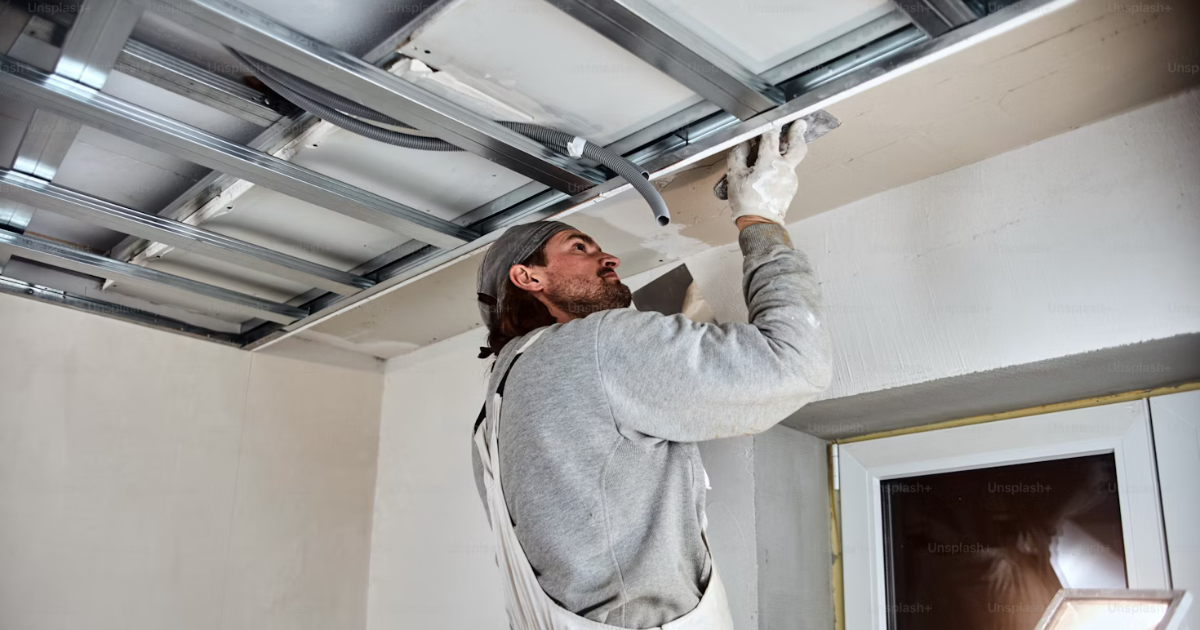
Most Popular Roofing Materials in Florida
Asphalt Shingles
Affordable and versatile, asphalt shingles are common in Florida. However, they can become brittle in intense heat and humidity, promote mold growth, and suffer from salt air corrosion. For better performance, consider shingles with wind-resistant technologies like Owens Corning’s SureNail®.
Metal Roofing
Metal roofs, made from steel, aluminum, or copper, excel in reflecting heat and resisting moisture. They are highly durable and wind-resistant, making them ideal for hurricane-prone areas. Choose coatings like Tedlar® PVF Film to prevent corrosion and WeatherXL™ SMP for UV protection.
Tile Roofing
Tiles offer excellent insulation against heat and are resistant to moisture, mold, and salt air. They are also durable and withstand high winds and UV radiation, making them a great long-term investment for Florida’s climate.
Synthetic Roofing Materials
Synthetic roofs mimic natural materials while being highly resistant to heat, moisture, and mold. They are also UV-resistant and corrosion-proof, providing an affordable and durable option for various weather conditions.
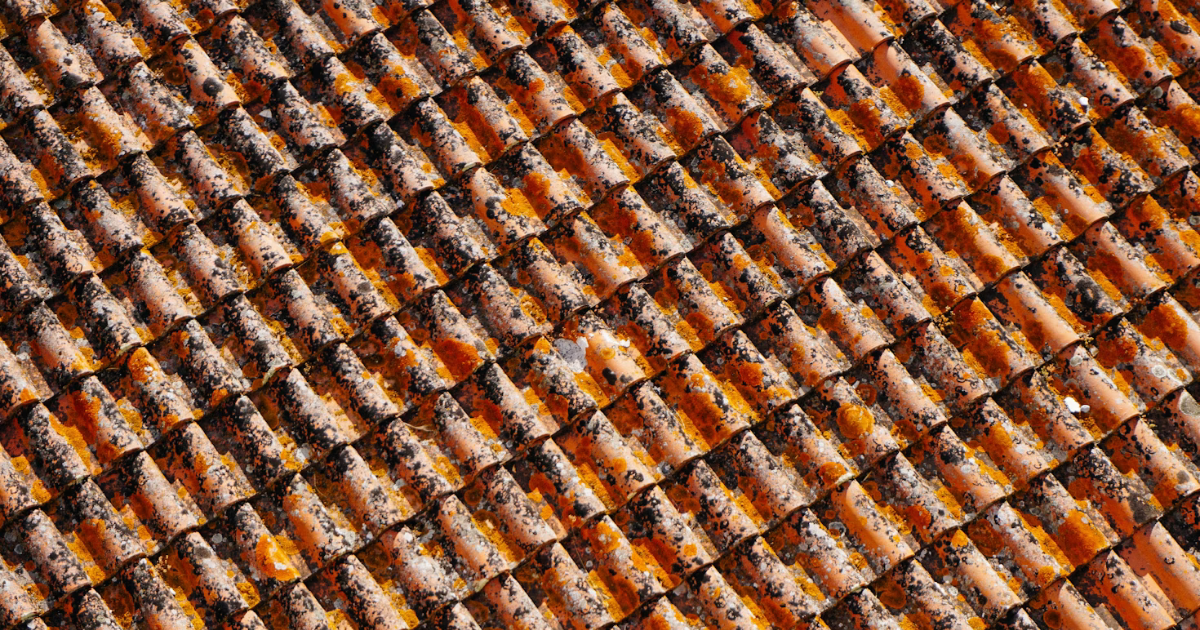
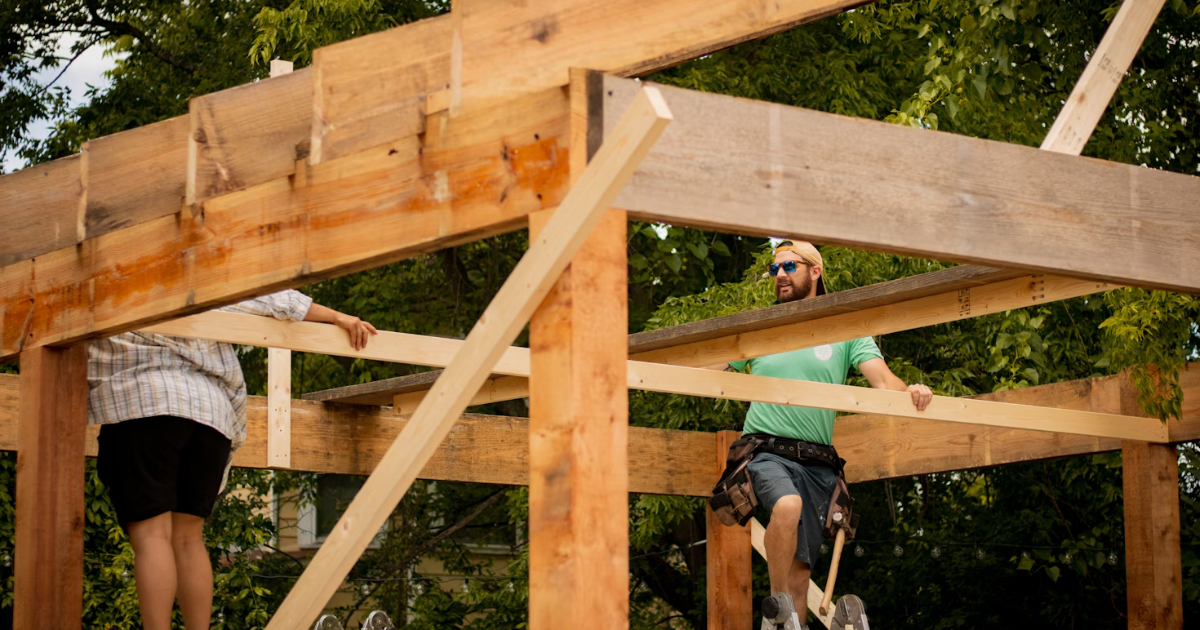
Professional Roof Inspection, Maintenance, and Replacement Services
Regular roof inspections are crucial for identifying early signs of damage, ensuring longevity, and maintaining energy efficiency. Our roof maintenance services help prevent costly repairs by addressing issues before they escalate. When the time comes for a new roof, our expert team offers top-quality roof replacement services, ensuring your home is protected with durable materials designed to withstand Jacksonville’s extreme weather conditions. Contact us today for reliable roofing solutions.
At Steel Rudder Roofing, we specialize in providing high-quality roofing solutions tailored to Jacksonville’s unique climate. With a team of experienced professionals, we deliver expert installations, repairs, and maintenance services for residential and commercial properties. Our commitment to using durable materials ensures your roof is built to last, offering maximum protection against storms, heat, and humidity. Trust us for reliable, long-lasting roofing that stands the test of time.
Bottom Line
Choosing the right roofing material is essential for protecting your home from Jacksonville’s extreme heat, humidity, and hurricane-force winds. Asphalt shingles, metal roofing, concrete tiles, and slate are all great options depending on your needs for durability, energy efficiency, and weather resistance.
For expert advice and installation, Steel Rudder Roofing is one of the best roofing companies in Jacksonville, FL. Our experienced team specializes in roofing contractor services, offering tailored solutions to handle the city’s challenging climate. Whether you need roof repair, installation, or a professional consultation, we’ve got you covered.
Contact Steel Rudder Roofing today for a free consultation and ensure your roof is ready for whatever weather comes your way!
FAQS about Choosing the Best Roofing Materials for Jacksonville’s Climate
Which power tool is best for ripping sheet materials for roofing, flooring, and drying in a structure?
For ripping sheet materials, a circular saw is generally the best tool. It can handle various materials, including plywood and OSB, with precision. For metal roofing sheets, a metal-cutting circular saw or a jigsaw with a metal-cutting blade might be more suitable. For flooring, particularly if it's hardwood or laminate, a table saw or a circular saw with a fine-toothed blade is ideal. Ensure you use the correct blade type for the material you're working with to achieve the best results.
What are the best roofing materials for different climates?
- Hot and Dry Climates: Metal roofing and clay tiles are excellent as they reflect sunlight and have good thermal properties.
- Cold and Snowy Climates: Asphalt shingles and slate roofing offer good insulation and can handle snow loads effectively.
- Humid and Rainy Climates: Metal roofing and concrete tiles are resistant to moisture and mold, making them suitable for humid conditions.
- Hurricane-Prone Areas: Metal roofing and reinforced concrete tiles provide the durability needed to withstand strong winds and flying debris.
Choosing the Right Roofing Material for Your Jacksonville Home
- Climate: Pick materials that endure Jacksonville’s heat, humidity, and hurricanes. Metal and concrete tiles are ideal.
- Budget: Consider both upfront costs and long-term maintenance. Durable options may cost more initially but save money over time.
- Aesthetics: Choose materials that match your home’s style and the coastal environment.
- Durability: Opt for materials that resist extreme weather and UV rays.
- Installation and Maintenance: Ensure compatibility with your roof and ease of upkeep. Proper installation is key for weather resistance.
How often should roofing materials be inspected or replaced?
Regular inspections are crucial to maintaining your roof. Ideally, you should inspect your roof at least once a year and after major weather events. Most roofing materials have different lifespans, so replacement timing varies:
- Asphalt Shingles: Every 15-20 years
- Metal Roofing: Every 40-70 years
- Concrete or Clay Tiles: Every 50+ years
- Slate Roofing: Every 100+ years
If you notice signs of damage such as leaks, missing shingles, or sagging, it’s important to address these issues promptly to prevent further damage.
How long do you want to deal with roofing problems?
Contact us for a free consultation and start your journey to a new, worry-free roof with Steel Rudder Roofing!
Get in Touch
(904) 699-4573
kenbaker@steelrudder.com
Hours of Operation
Monday – Friday: 8am – 6pm
Saturday – Sunday: 9am – 1pm
Our Headquarters
10151 Deerwood Park Blvd.
Building 200, Suite 250
Jacksonville, FL 32256
